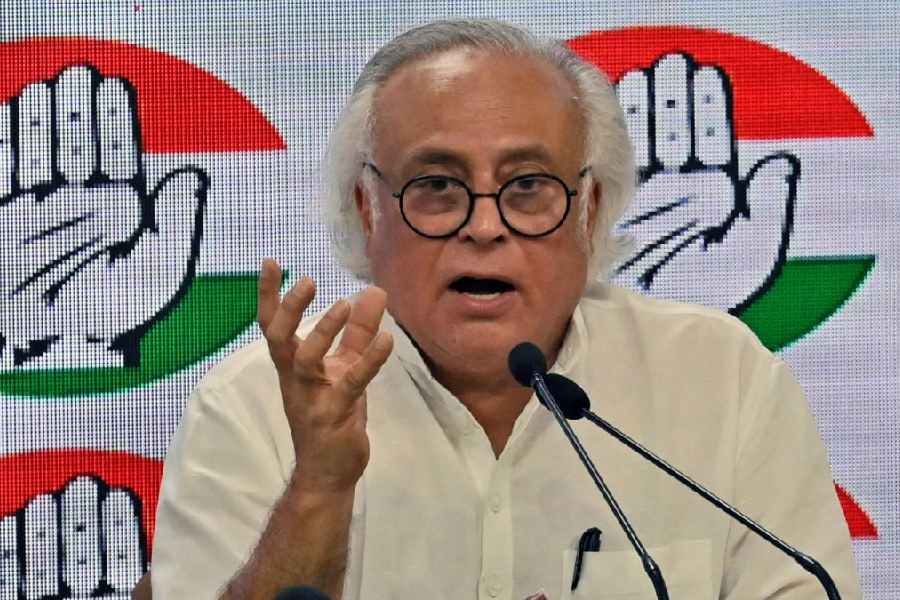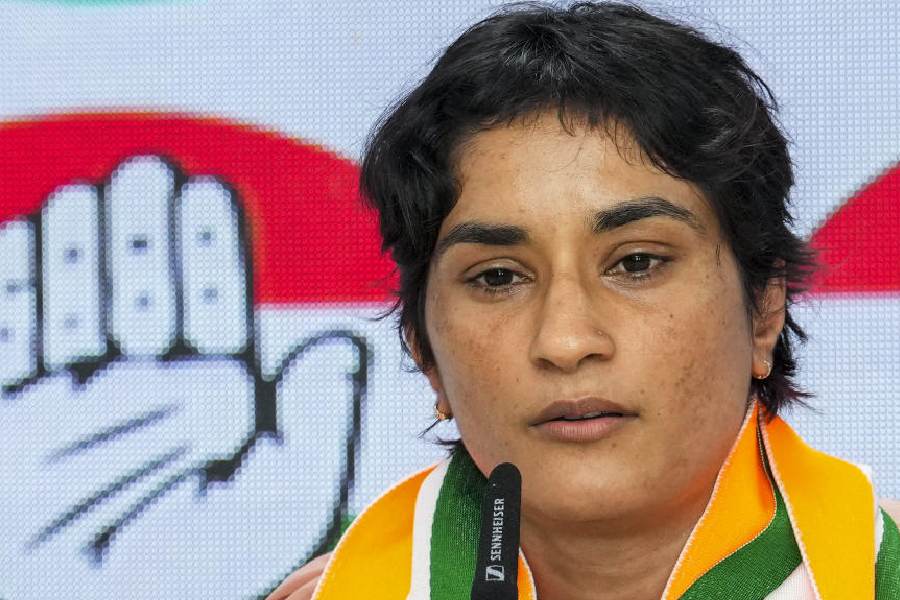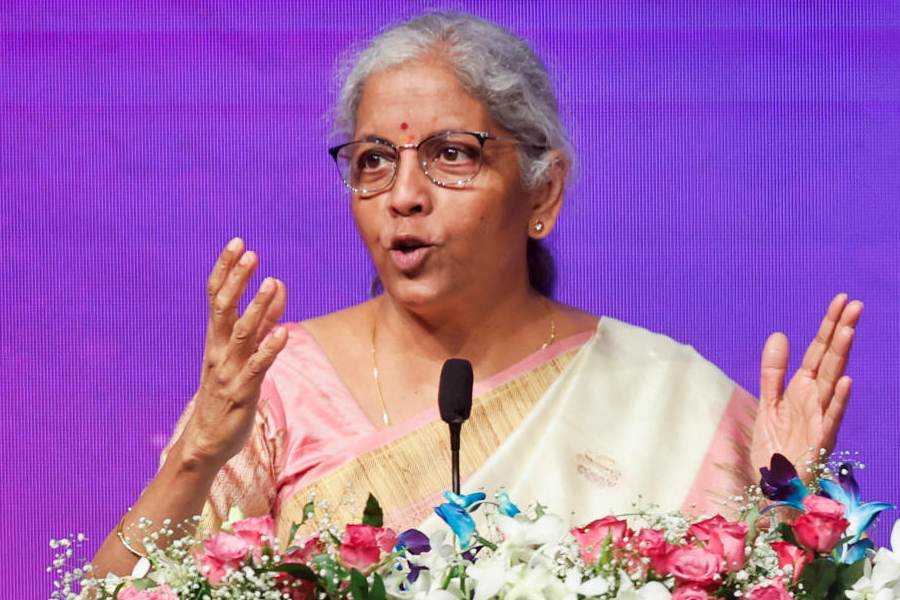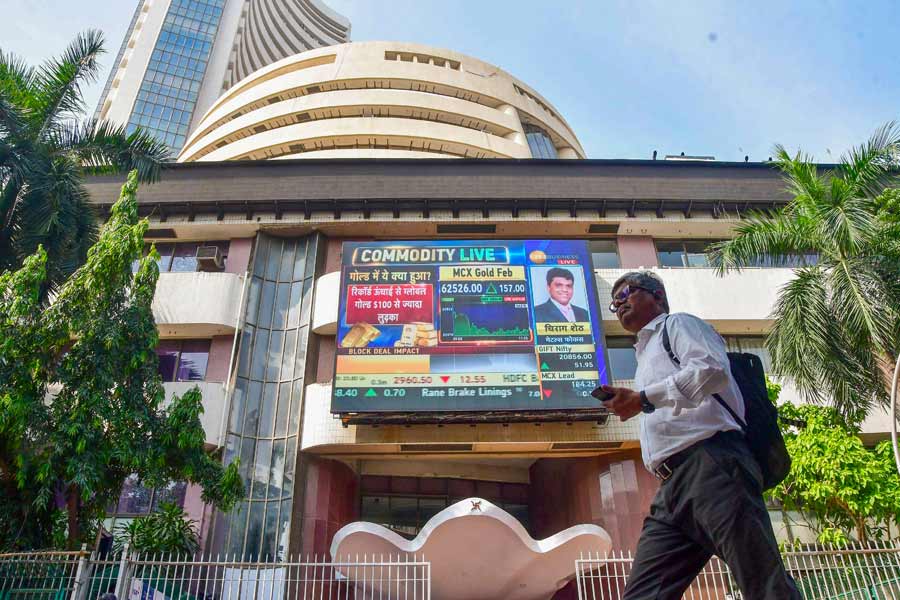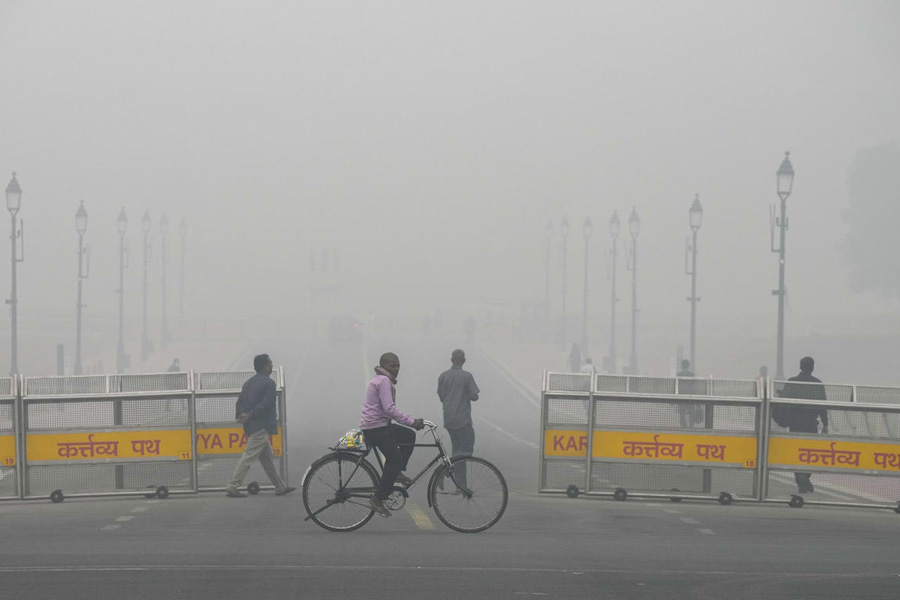The Congress Monday attacked the Modi government over the "rapidly deteriorating" air quality across the country and alleged the dispensation always denies that there is a real problem of mortality linked to air pollution, and underfunds mitigation efforts.
Congress General Secretary (In-charge, Communications) Jairam Ramesh said there are clear steps the government must take moving forward, and the first must be to acknowledge the public "health crisis" associated with air pollution across wide swathes of India.
"Among the lesser-known tragedies of the non-biological PM’s reign is the rapidly deteriorating air quality nationally and the inattentiveness and policy chaos that has characterised the Government's response to it," Ramesh said in a statement.
"Aap chronology samajhiye: In early July, a study published in the prestigious Lancet journal showed that 7.2% of all deaths in India are associated with air pollution - about 34,000 deaths each year in just 10 cities," he said.
In mid-July, a study by the Centre for Science and Environment revealed that the government's pollution control interventions are poorly designed, with the National Clean Air Program (NCAP) largely focused on mitigating road dust rather than industrial, vehicular, and biomass emissions -- the source of PM 2.5 -- that are the leading causes of mortality, Ramesh said.
To make matters worse, in the past five years, the Central Pollution Control Board (CPCB) has left more than 75 per cent of the Environment Protection Charge (EPC) and Environmental Compensation (EC) funds unspent, he said, claiming that in total Rs 665.75 crores have been left unutilised.
"On July 29, 2024, upon being asked a question about the Lancet study, the Ministry of Environment, Forests, and Climate Change made the shocking claim in the Rajya Sabha that there was 'no conclusive data' to directly correlate air pollution and deaths," he pointed out.
Ramesh further said that this week, a new study by the Mumbai-based International Institute of Population Sciences has used government data from the National Family and Health Survey (NFHS V) to unravel India's "worst kept secret" -- that air pollution is costing thousands of Indians their lives and health.
In districts where air pollution exceeds National Ambient Air Quality Standards (NAAQS), there is a 13 per cent increase in premature mortality for adults and around 100 per cent increase in mortality for children, he said.
"This government's Modus Operandi is to deny that there is a real air pollution-linked mortality problem, underfund programs targeted at mitigating pollution, fail to utilize the resources that it allocates, and misuse the funds that do get spent," Ramesh said.
"There are clear steps the government must take moving forward: The first step must be to acknowledge the public health crisis linked to air pollution across wide swathes of India. Consequently, given this crisis, we must revisit and totally revamp both the Air Pollution (Control and Prevention) Act of 1981 and the NAAQS put into effect in November 2009," the Congress leader said in his statement.
The government must drastically increase the funds made available under the NCAP, he said.
The current budget, inclusive of the NCAP funding and the 15th Finance Commission's grants, is about Rs 10,500 crore, spread across 131 cities, he noted.
"Our cities need at least 10-20 times more funding - NCAP must be made a Rs. 25,000 crore programme. NCAP must adopt measurement of PM 2.5 levels as the yardstick for performance NCAP must reorient its focus to key sources of emissions – burning of solid fuels, vehicular emissions, and industrial emissions," the former environment minister said.
He further demanded that the NCAP must adopt a regional/airshed approach for air quality control -- municipal and state authorities must have the governance architecture and resources required to collaborate across jurisdictions.
"The NCAP must be given legal backing, an enforcement mechanism, and serious data monitoring capacity for every Indian city, beyond the current focus only on 'non-attainment' cities," he argued.
Ramesh also called for immediate enforcement of air pollution norms for coal power plants.
All power plants must install a Fluoride Gas Desulfurizer (FGD) by the end of 2024, he said.
"The National Green Tribunal's independence must be restored, and the anti-people environmental law amendments made in the last 10 years must be rolled back," Ramesh demanded.
Except for the headline, this story has not been edited by The Telegraph Online staff and has been published from a syndicated feed.

